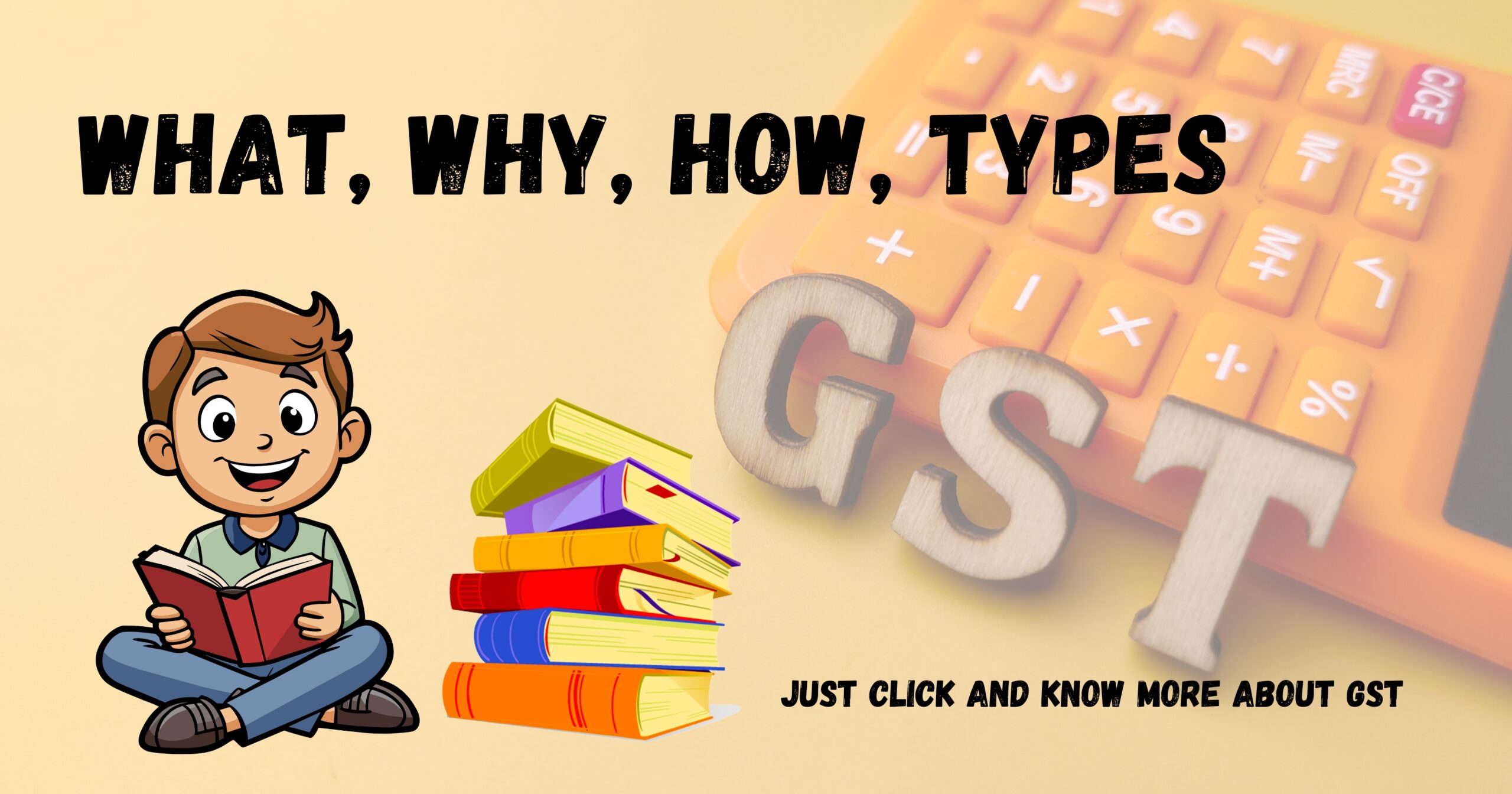What is GST? A Simple Guide for Everyone!
GST, or Goods and Services Tax, is a type of tax that the government collects on the sale of goods and services in India. It was introduced on July 1, 2017, and has simplified how businesses handle taxes by combining various indirect taxes (like VAT, service tax, etc.) into one single tax.
Why GST is Important?
GST is important because it makes tax collection transparent and fair for everyone. Before GST, businesses had to deal with multiple taxes at different stages of production and sales, which made things complicated. GST came to the rescue by streamlining the process and making it easier for both businesses and consumers.
How Does GST Work?
GST is charged at every stage of the supply chain, from manufacturing to sale. But here’s the good part: the tax you pay on the product can be reduced by the tax you’ve already paid at earlier stages. This is called input tax credit (ITC). So, businesses don’t end up paying tax on tax, and consumers pay a fair price.
Types of GST
- CGST (Central Goods and Services Tax) – Collected by the central government on sales within a state.
- SGST (State Goods and Services Tax) – Collected by the state government on sales within a state.
- IGST (Integrated Goods and Services Tax) – Collected by the central government on interstate sales (between two states).
Who Should Register for GST?
If you run a business with an annual turnover of more than ₹40 lakh (₹20 lakh for some special category states), you need to register for GST. Even if your turnover is below this threshold, you can voluntarily register to avail benefits like input tax credit.
GST Rates
GST has different tax slabs: 5%, 12%, 18%, and 28%, depending on the type of goods or services you offer. For instance:
- 5% for essential items like packaged food.
- 12% or 18% for most services and goods.
- 28% for luxury items like cars and high-end electronics.
Filing GST Returns
Once you’re registered, you’ll need to file your GST returns periodically (monthly or quarterly, depending on your turnover). This involves submitting details of your sales and purchases, paying the tax owed, and claiming any input tax credit.
Benefits of GST
- Simplifies the tax structure: No more juggling multiple taxes!
- Reduces cascading effect: You don’t have to pay tax on tax anymore.
- Makes businesses competitive: Lower tax rates mean lower costs, which is good for consumers too.
Conclusion
GST has truly transformed the way taxes are handled in India. It’s not just about paying taxes; it’s about making the system efficient and transparent for all. Whether you’re a business owner or a consumer, understanding GST can help you make more informed decisions!
If you need any help with GST registration or filing, feel free to reach out!
